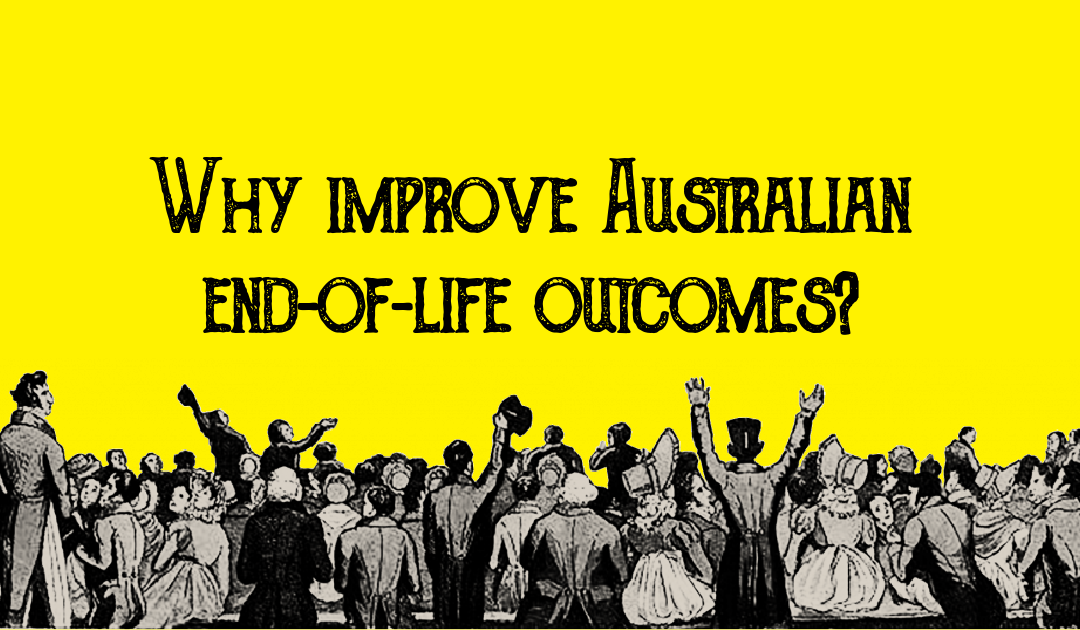According to statistics measuring Australian end-of-life outcomes, we haven’t got it together as a nation in the death department.
While 80% of Australians want a good death, very few people go through the advance care planning stages necessary to activate it. While 70% of Australians would love to die at home on their terms, surrounded by familiar things and friendly faces, less than 14% of people manage to die this way.
Why Australia doesn’t experience the end-of-life outcomes we’d prefer
The main stumbling block to people dying at home is a lack of understanding of end-of-life services and how concepts like advance care planning and palliative care services can help. Most of the time, the reason why we don’t receive the end-of-life outcomes we seek is because we aren’t prepared for death properly. We don’t plan past our wills or choosing a Power of Attorney and/or we assume death only happens to the elderly.
How this influences Australian end-of-life outcomes:
- If you don’t have your wishes articulated and you lose the ability to speak for yourself, no one really knows what to do
- A medical professional’s primary function is to preserve lives. This becomes complicated when it intersects with the individual nature of how we each define quality of life
- It’s incredibly difficult to determine what treatments you will or won’t accept as you die and this places extraordinary pressure on your loved ones to fill in the gaps
- Deeply personal concepts like what you are willing to risk to maintain your dignity won’t be considered if they are not written down
- If you haven’t specifically stated it and you want to die at home, most of the time it simply won’t happen
- You increase the chance of family division if there is no treatment road-map as they struggle to make complex medical, social and psychological choices for you
- It becomes difficult for the person advocating for your choices, planning your funeral, managing your estate and looking after you may feel overwhelmed, stressed and even resentful
- If you want someone other than your immediate family to take care of you, you need to outline what you want to make it legally and medically so.
That equals a whole lot of ways to leave a really bad last impression!
Be apart of the change you want to see
Why shouldn’t you have the same dignity, choice and individualised care you receive in life in death as well? You can improve your end-of-life outcomes by documenting your wishes ahead of time. And save your family and friends pain and stress in the process.
Be a part of the growing number of Australians who want to reduce the stress associated with end-of-life decision-making and make a commitment to improve end-of-life outcomes today.

